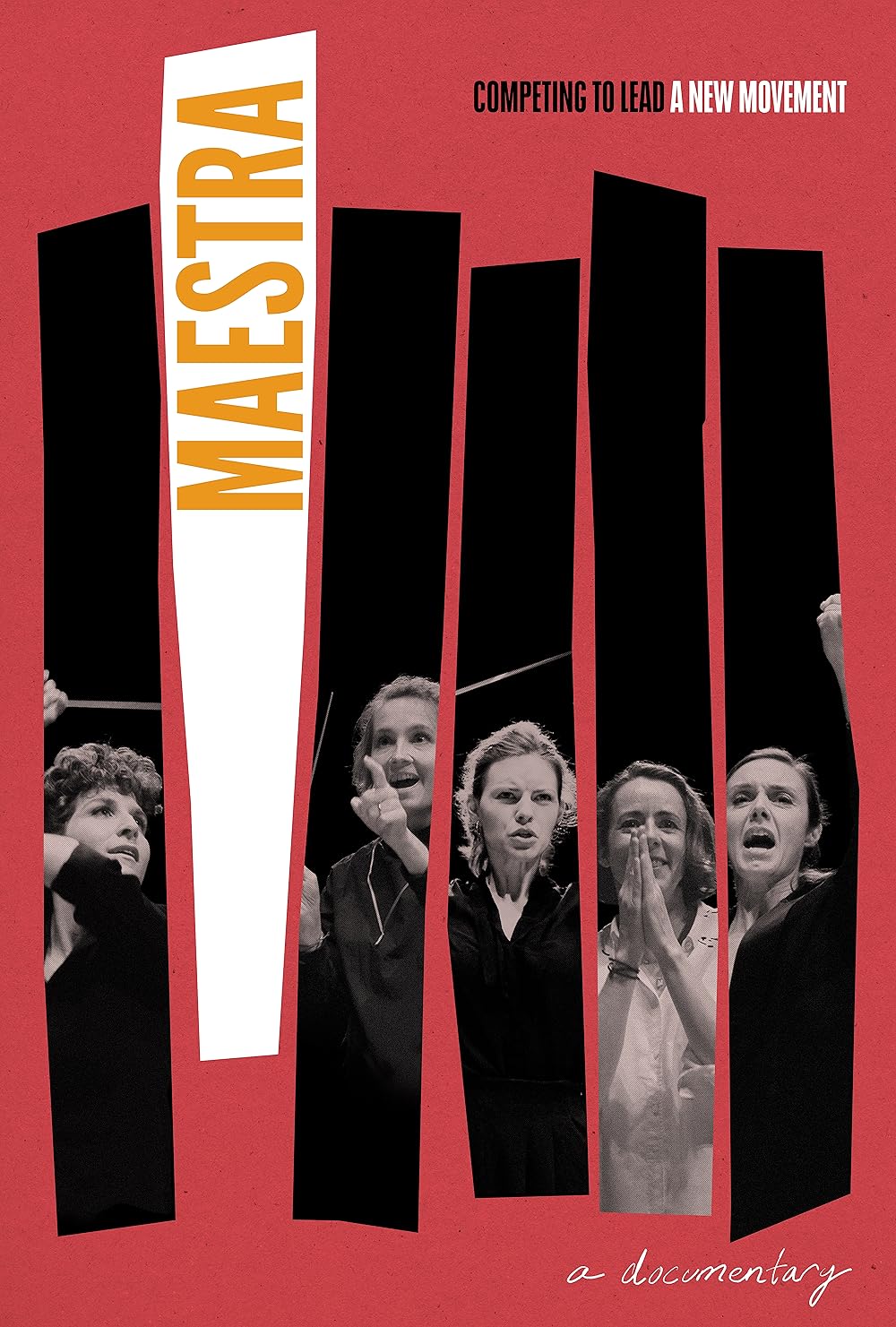Cate Blanchett’s searing performance in “Tár” left such an indelible impression that, for a while in late 2022/early 2023, people actually thought Lydia Tár was a real person.
She is not: The egotistical and tormented conductor is entirely fictional, the vivid creation of writer-director Todd Field. However, many passionate and dedicated female conductors exist, and director Maggie Contreras honors them with her documentary “Maestra.” Sadly, they are still very much in the minority; early in Contreras’ film, we learn that women make up less than 3 percent of all orchestral conductors worldwide.
That’s where “La Maestra” comes in. It’s an annual competition for female conductors, and it aims to shine a light on their talents and boost their profile within these rarefied, male-dominated circles. In directing her first feature, Contreras takes a straightforward approach to documenting the 2022 contest. She follows a handful of conductors from various points on the globe as they get ready for their big moment on the Paris stage. But within this traditional structure, she’s chosen her subjects well. They have a variety of experiences, personalities, and home lives that inform their art.
And make no mistake, conducting is an art, one that allows for a wide range of dramatic expression and individual interpretation. “Maestra” leaves us in awe of everything conductors must do at once, from knowing the intricate pieces intimately before they even step on the stage to connecting with every single musician to get the best possible performance out of them. It requires a lot of detail-oriented plate-spinning under intense scrutiny and pressure—thorough preparation, coupled with the ability to improvise. No wonder women are so good at it. We do this kind of complex juggling every day of our lives.
Contreras introduces us to five women: Zoe Zeniodi, a fierce Greek who laments having to leave her twin son and daughter for weeks at a time to conduct in New Mexico; Tamara Dworetz, a chatty American who ponders balancing her professional ambitions with her desire to have a child with her husband; Ustina Dubitsky, a Ukrainian mother who’s competing with a heavy heart as she follows the Russian invasion of her country from afar; Anna Sułkowska-Migoń, a Polish prodigy in her mid-20s who’s competing for the first time; and Mélisse Brunet, a Frenchwoman who teaches at the University of Iowa and is returning to Paris with memories of a traumatic past. Each has a distinct method of preparation: Dworetz practices while lying down on the rug in her Georgia living room, while Dubitsky shows us the adorable, colorful stick figures her daughter drew in the margins of her sheet music.
One of the coolest revelations to come from “Maestra” is the affectionate way these women regard each other. There aren’t that many of them, so they’ve formed a supportive sorority. That extends to the elimination process, as the competition narrows down from 14 to six to three finalists on the third day, and they serve as one another’s cheerleaders and shoulders to cry on with equal kindness.
The natural progression of the competition structure is so engrossing that it makes Contreras’ third-act structural decision distracting and baffling. At the film’s climax, she crosscuts between two characters on two very different journeys. One is giving the performance of her life on stage; the other is revisiting painful memories from her youth. The parallel editing undermines the drama of both stories; especially for the woman who is among the three finalists, it feels like a missed opportunity for her to show off her full radiance.
Still, “Maestra” offers some shocking twists (unless you’re familiar with this particular niche of the classical music world or you Google what happened at La Maestra that year, that is). What isn’t shocking, though, is the feedback one of the more seasoned conductors receives from the panel after her second-round rejection: Maybe she should have smiled more. The real-life Lydia Társ of the world unfortunately still have a lot of work to do.




















